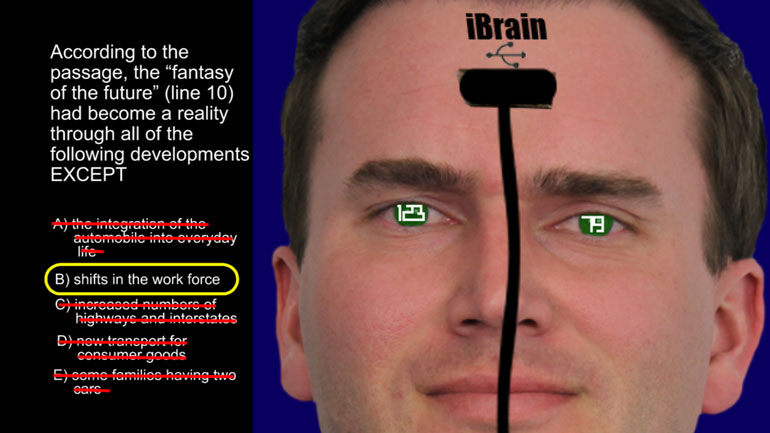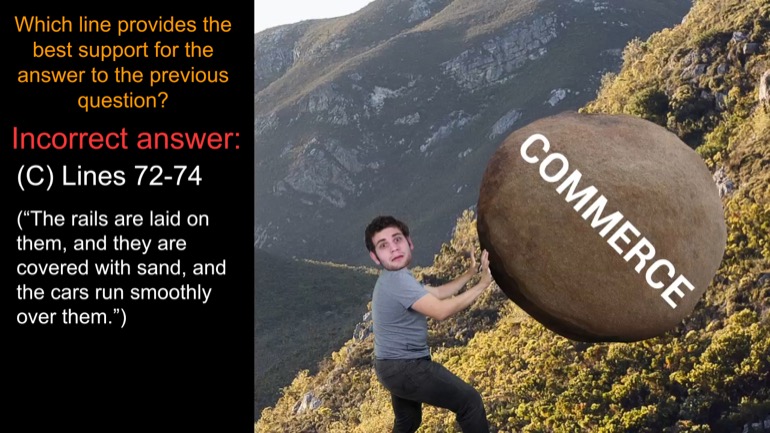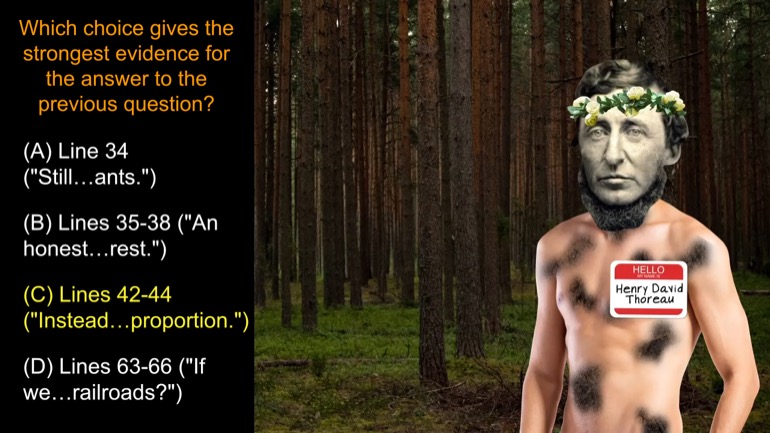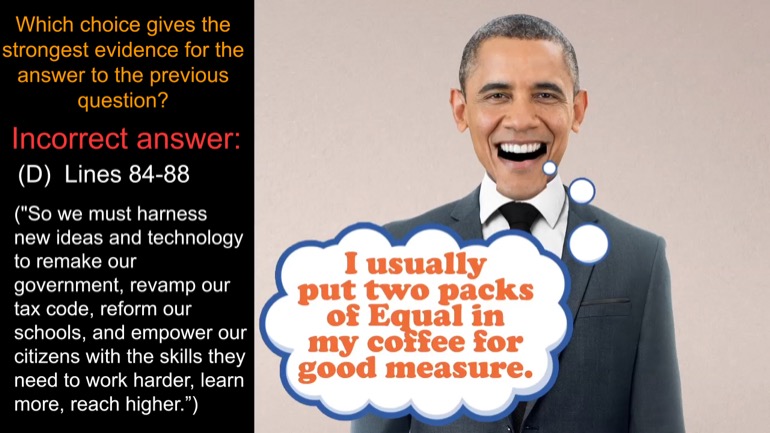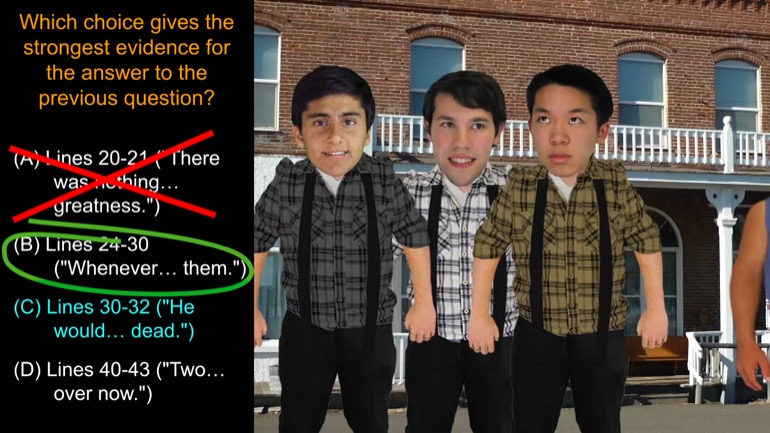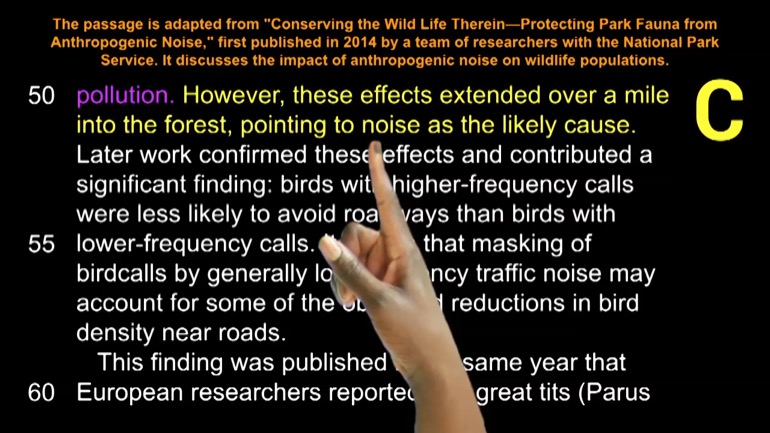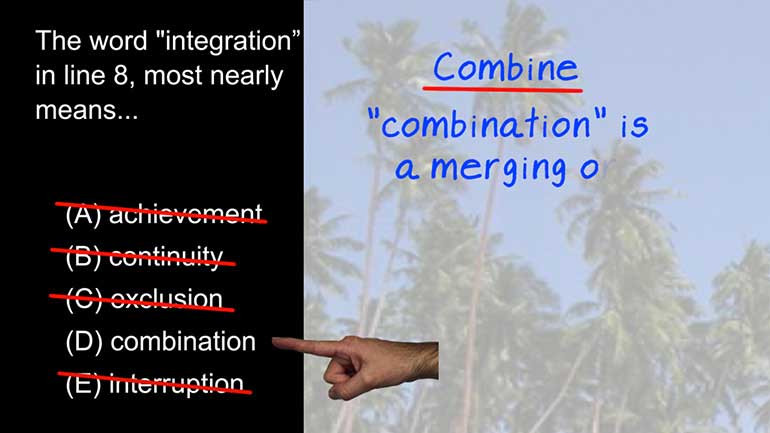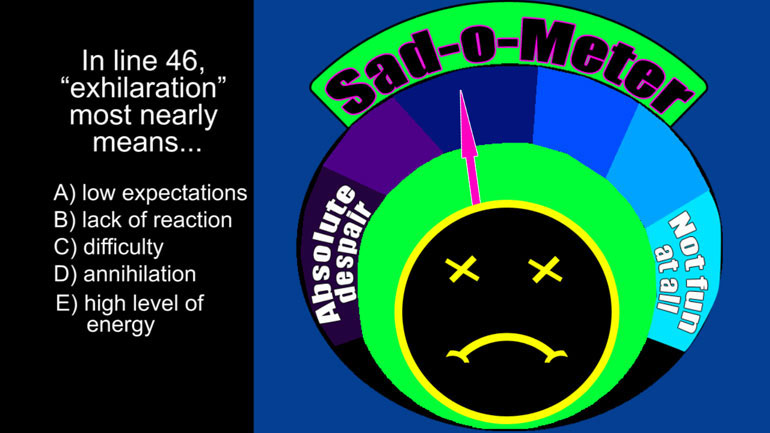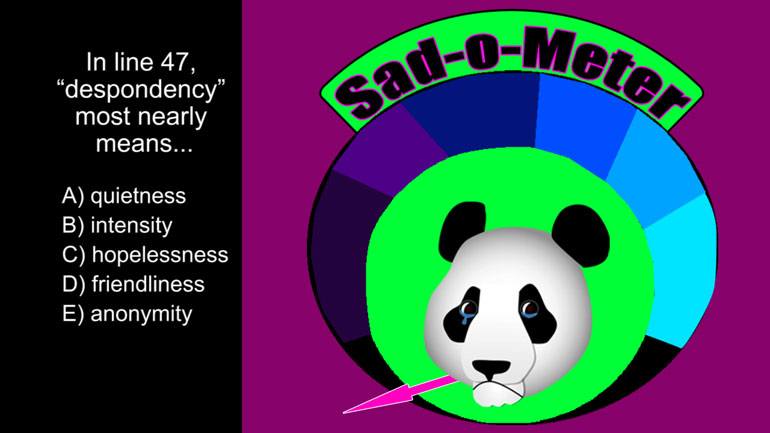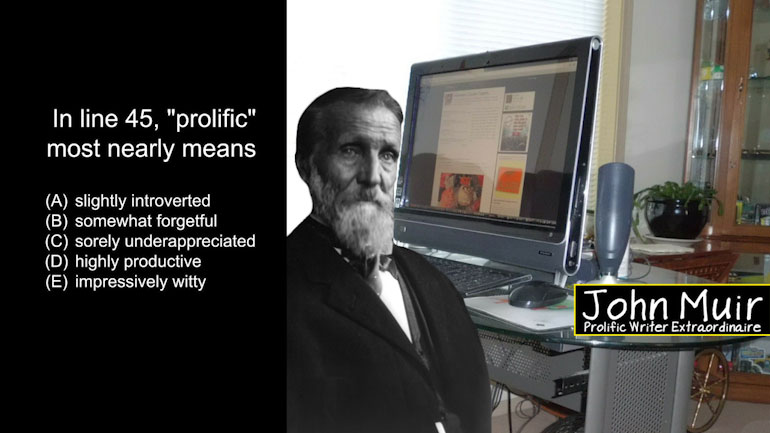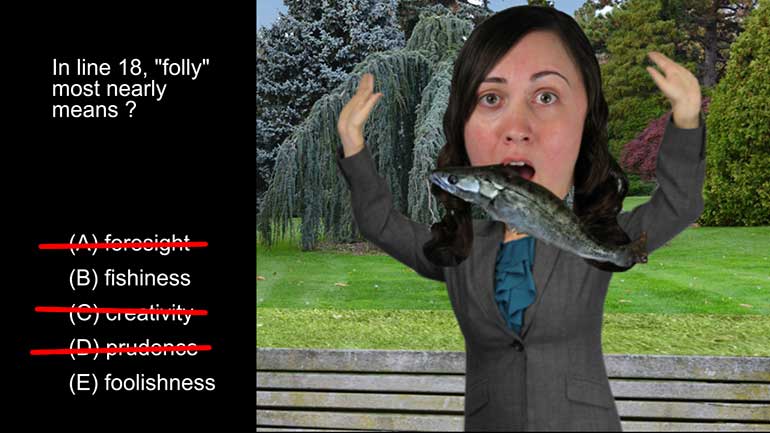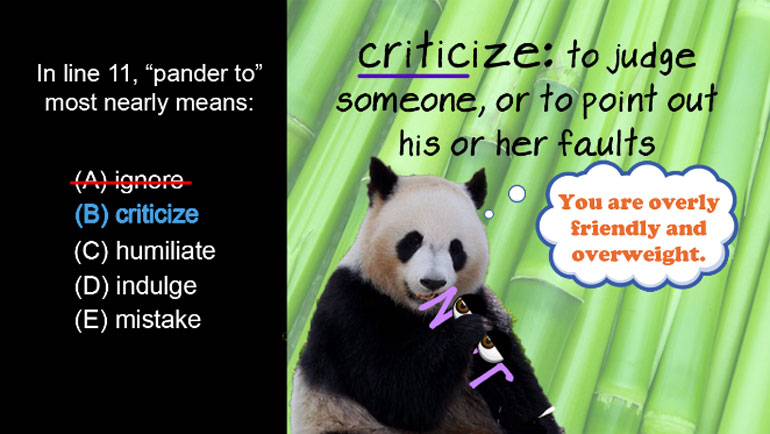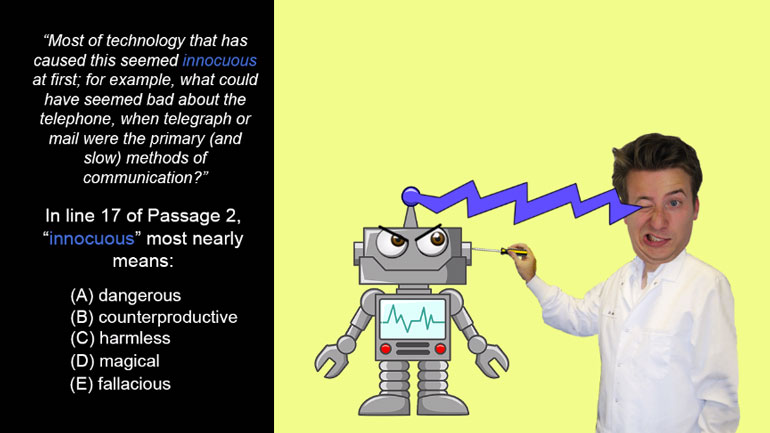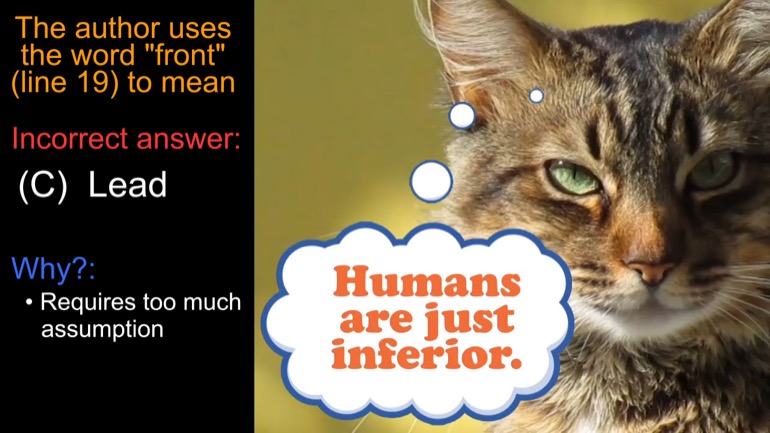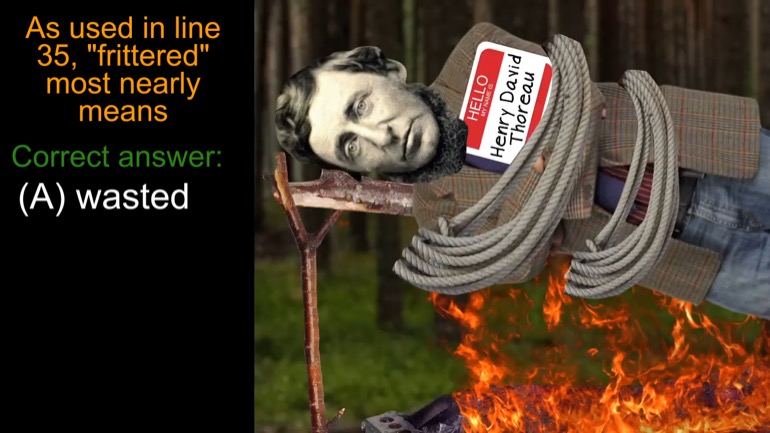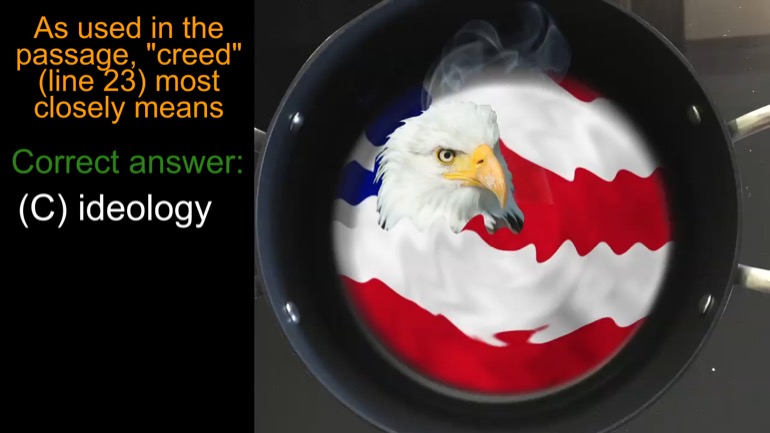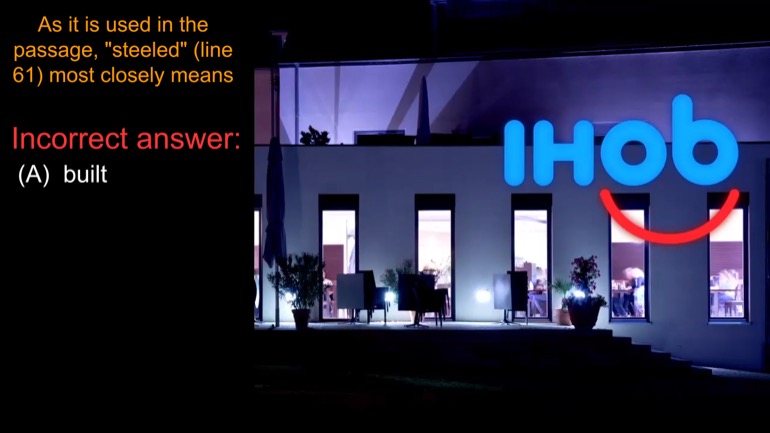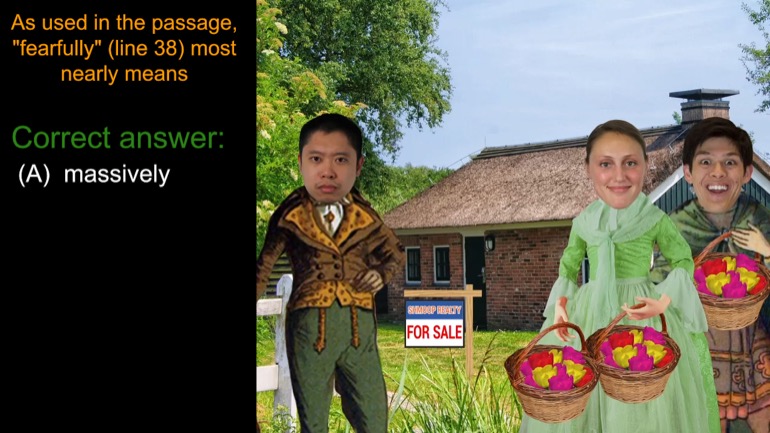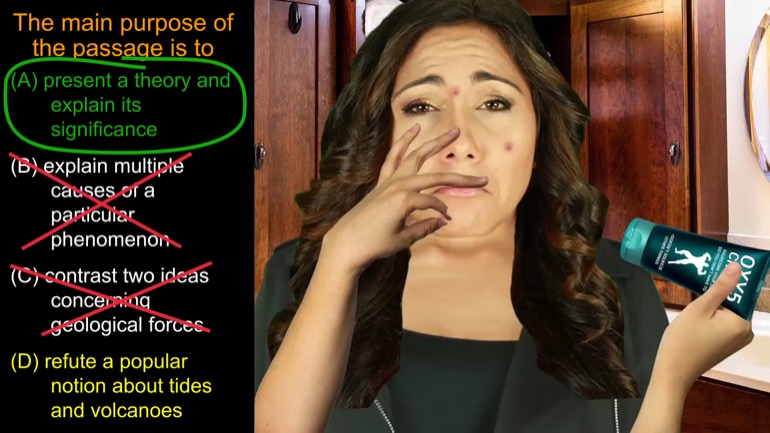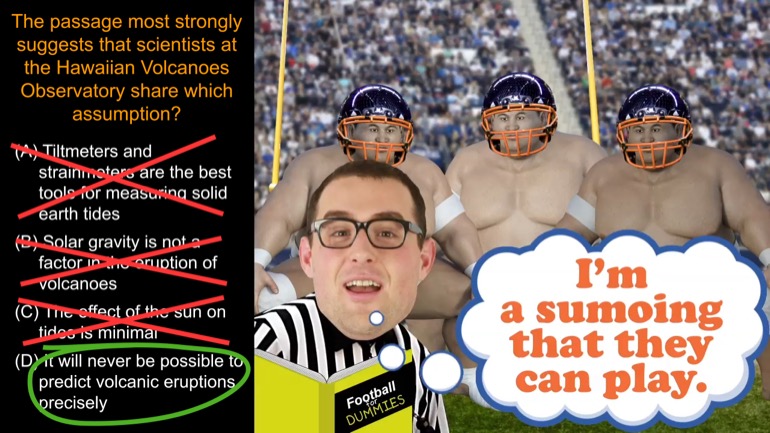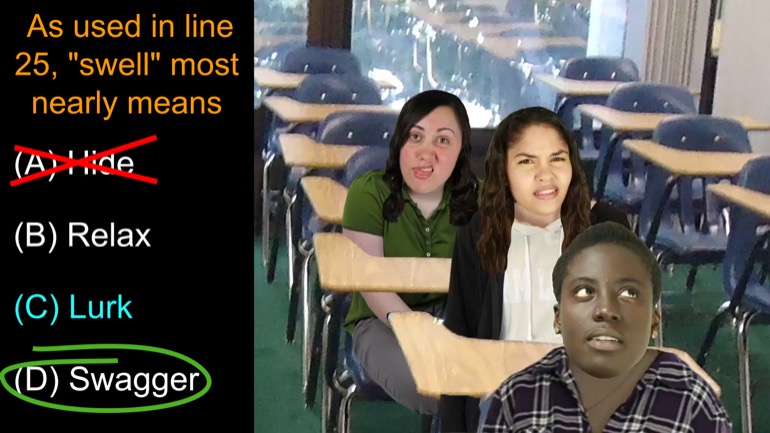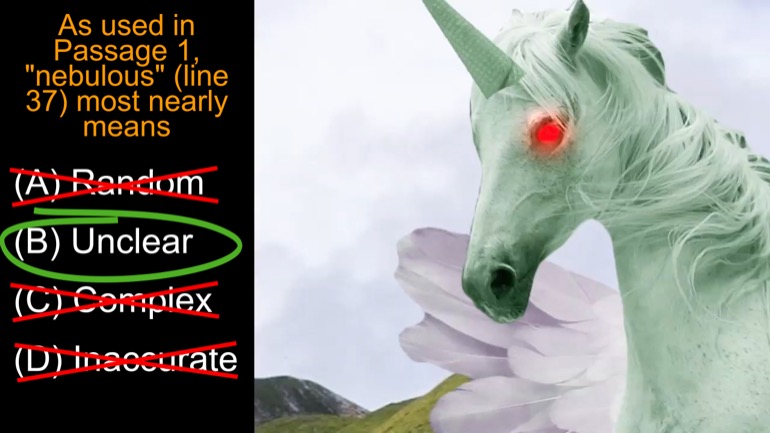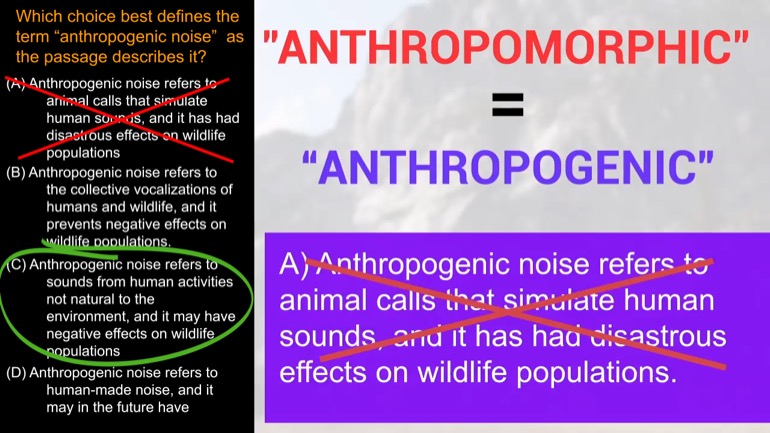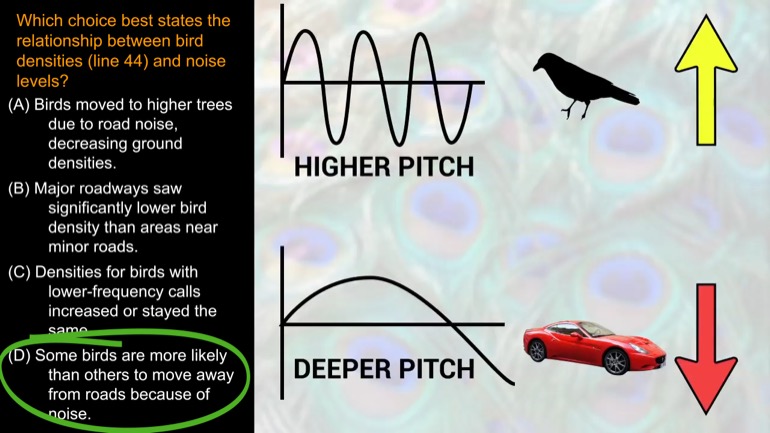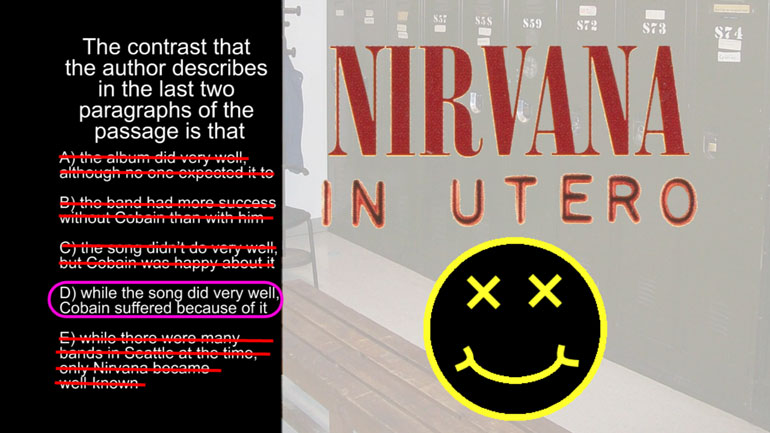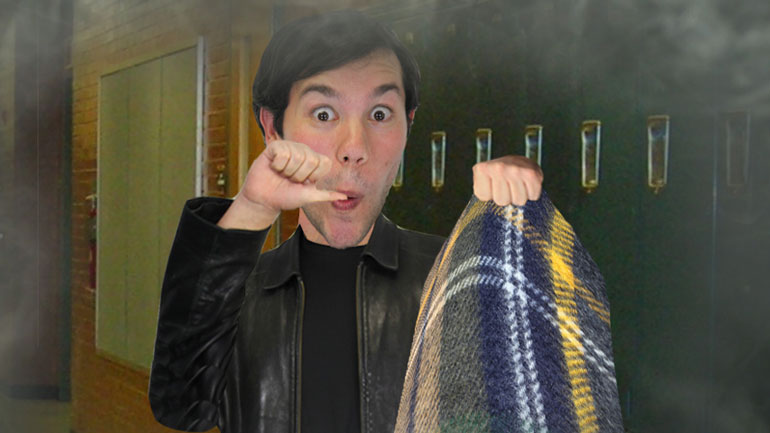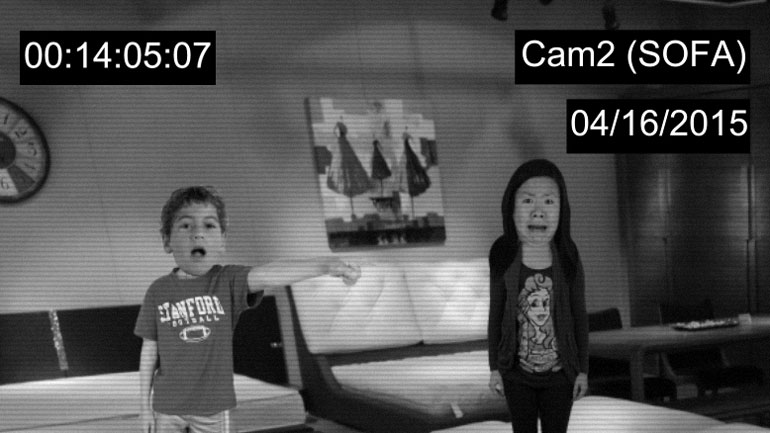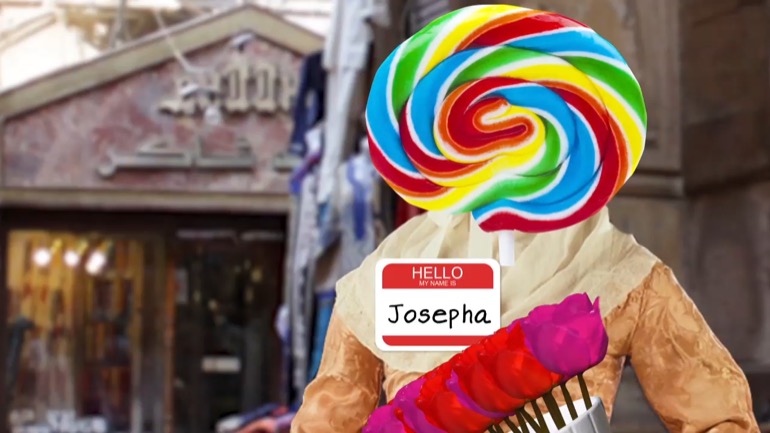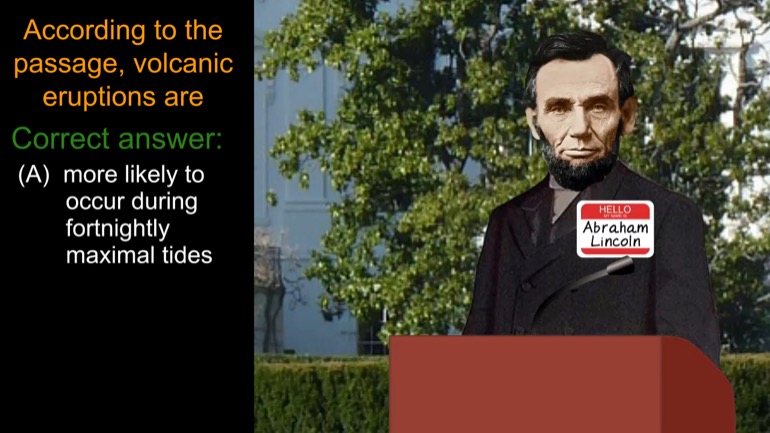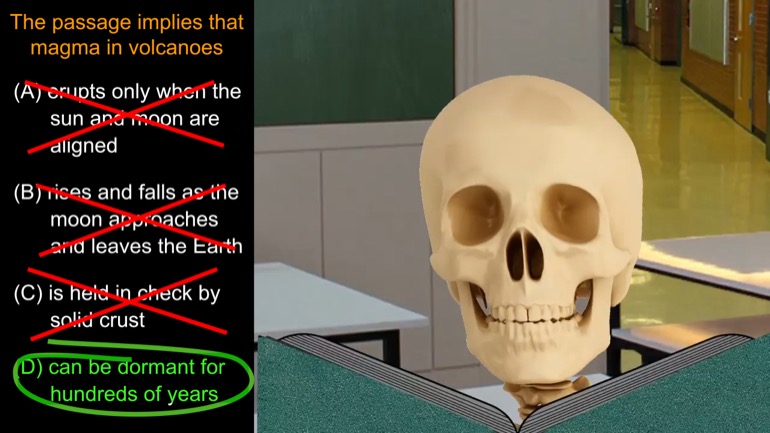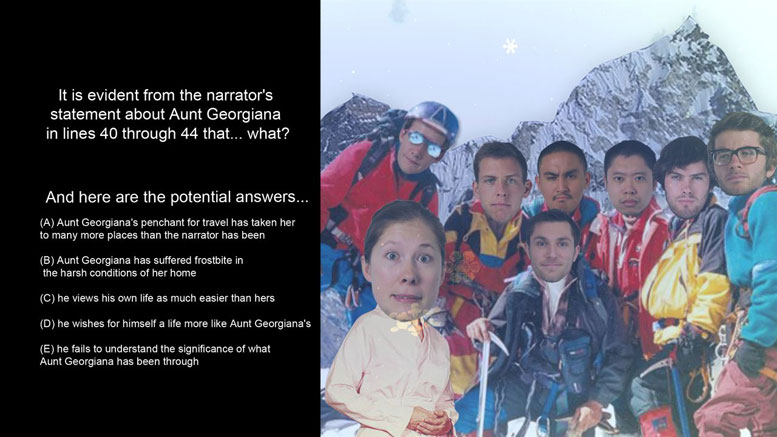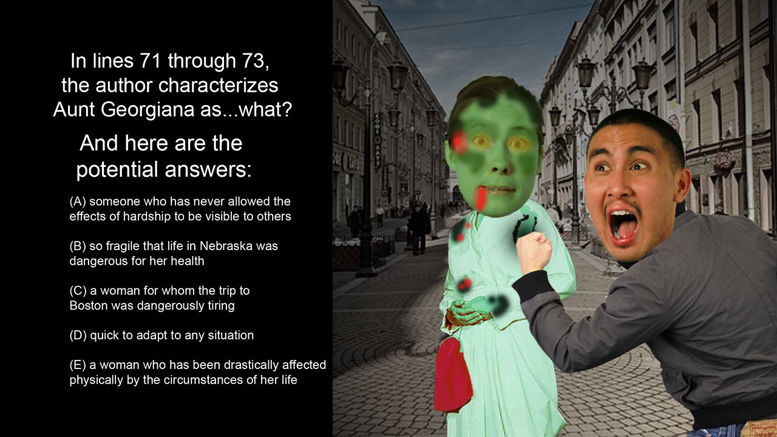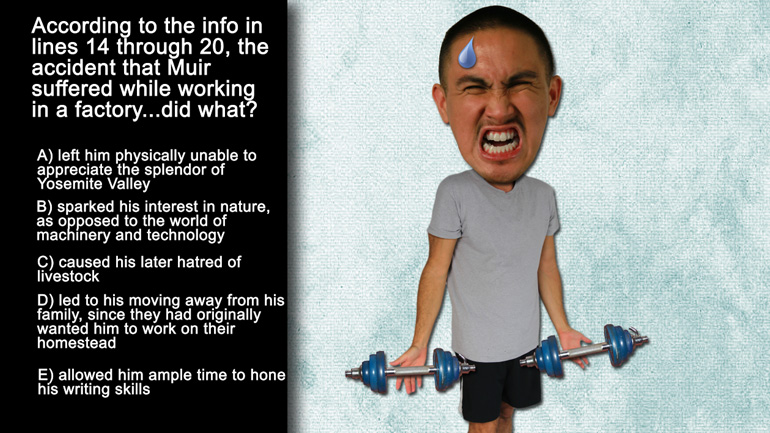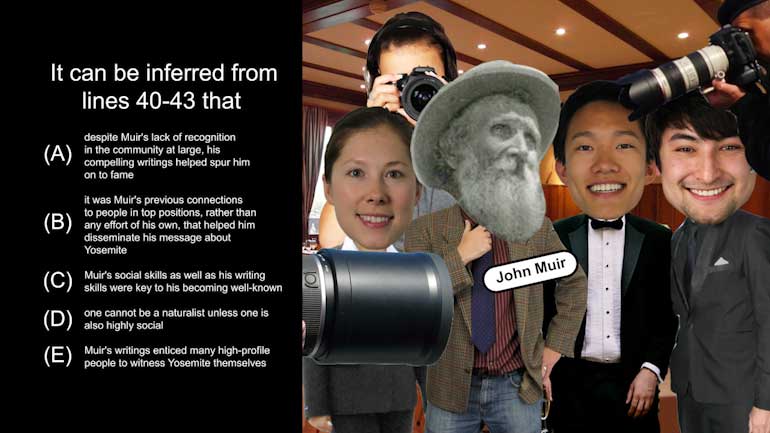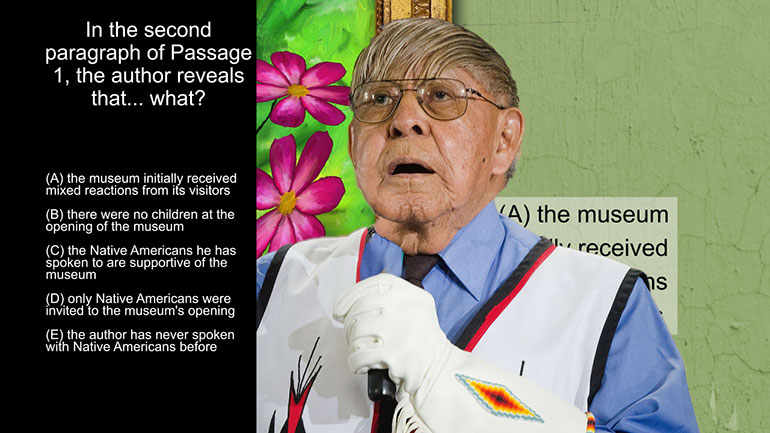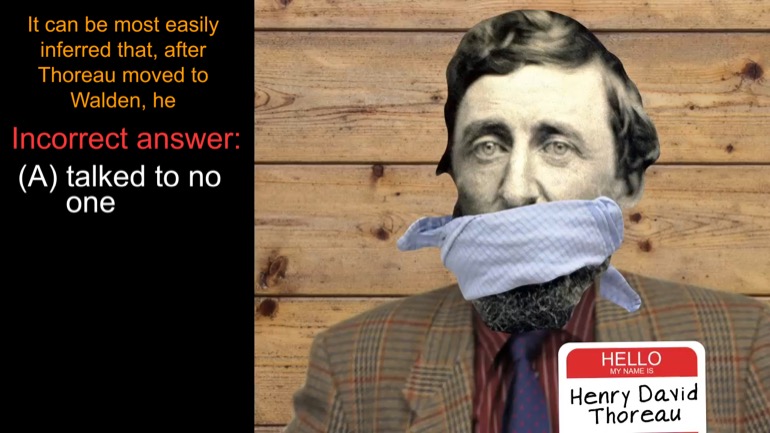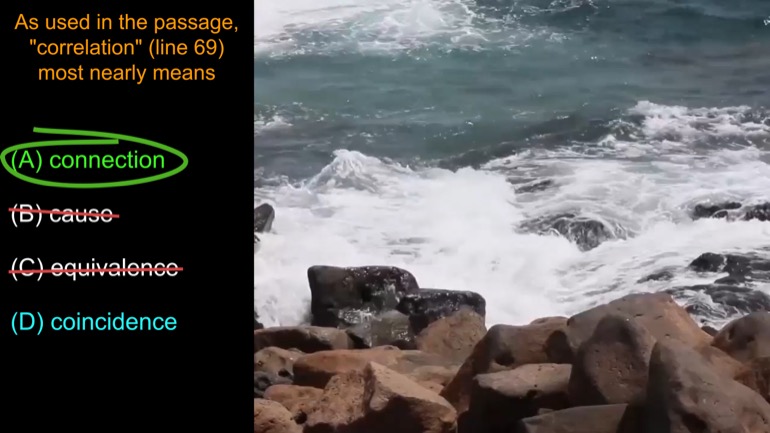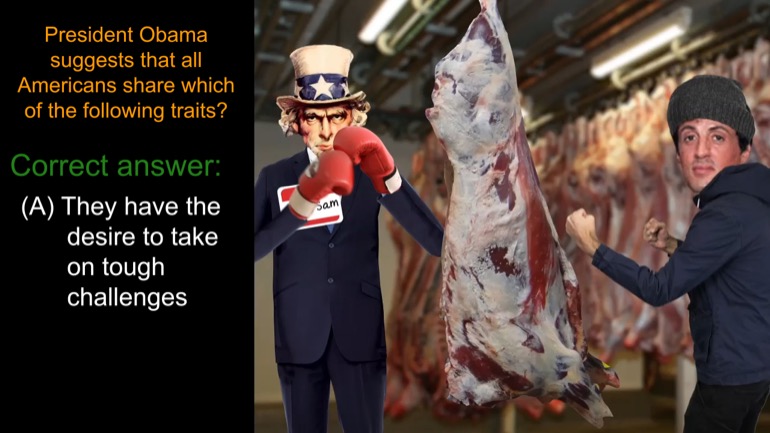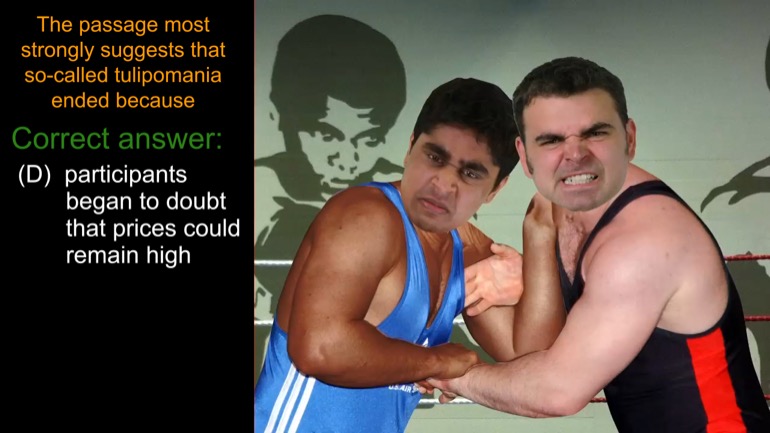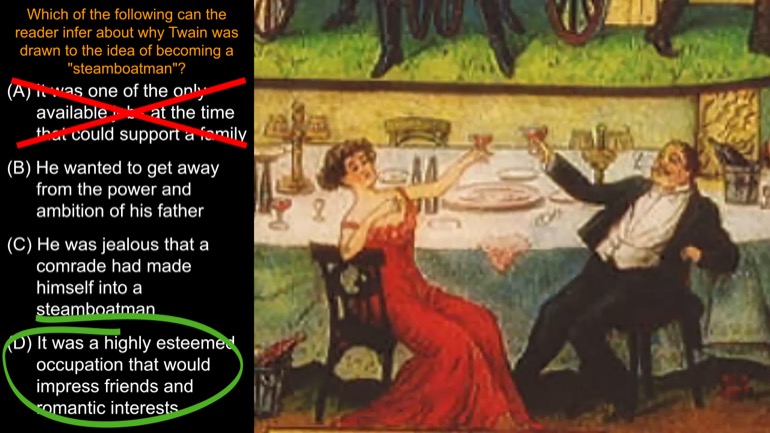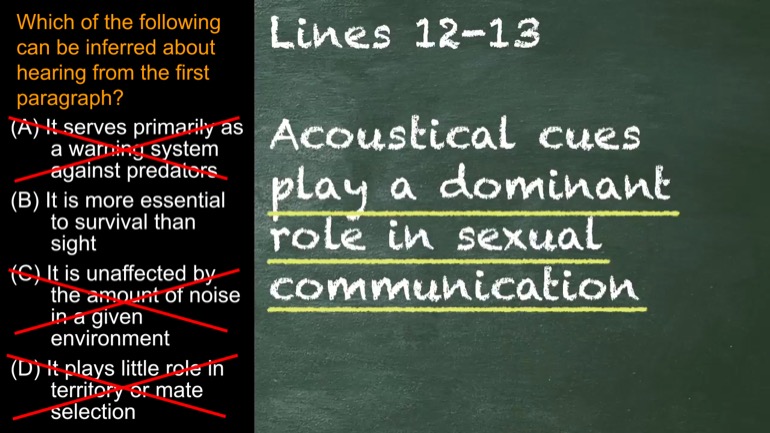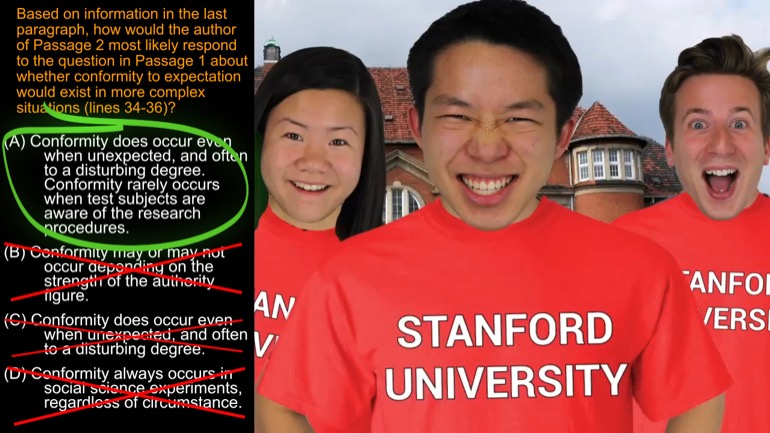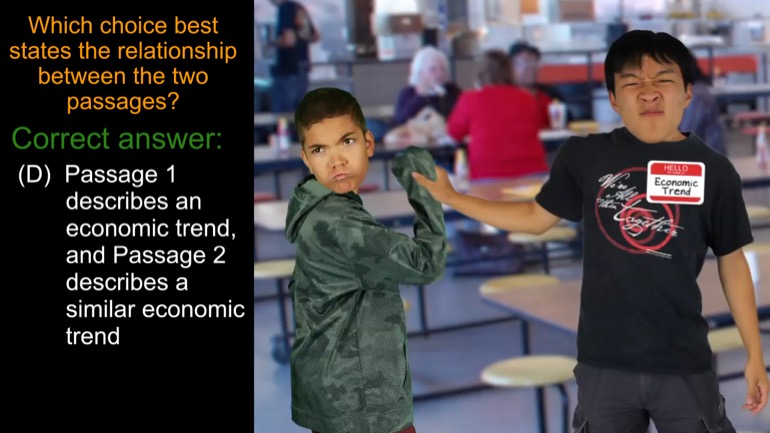ShmoopTube
Where Monty Python meets your 10th grade teacher.
Search Thousands of Shmoop Videos
SAT Reading 4.2 Passage Comparison 171 Views
Share It!
Description:
SAT Reading: Passage Comparison Drill 4, Problem 2
Transcript
- 00:03
Here's your shmoop du jour, brought to you by Ellis Island. A great place to try to see
- 00:08
up the Statue of Liberty's robe.
- 00:22
In line 56, "destitute" most nearly means... what?
- 00:26
And here are the potential answers...
- 00:32
The question points us to line 56, so to line 56 we go.
Full Transcript
- 00:36
According to the passage, one of the immigration laws of the late 19th century was aimed at
- 00:41
preventing "destitute" people from coming to the United States for the sole purpose
- 00:46
of going on welfare.
- 00:48
By following this train of thought, we can conclude that the law thought people without
- 00:53
money would want to apply for money from the government. So, basically, we're looking
- 00:57
for a word that means "poor."
- 00:59
Being poor might be kind of depressing, but not having any money doesn't necessarily
- 01:03
mean that you're sad all the time.
- 01:07
So Choice (A) is a no. The prefix "de" in front of "stabilized"
- 01:12
reminds us that the word refers to something that's been made unstable. Being "destitute"
- 01:18
is most likely not a very stable situation...
- 01:22
But--again--these two words don't always go hand in hand. Choice (B) is out.
- 01:26
When a person is distinguished it usually means that they're super good at something
- 01:30
and everybody thinks they're awesome.
- 01:32
We've never heard of anybody who was "distinguished" for being poor, so we're gonna scratch (C).
- 01:39
"Partial" means to be biased toward or in favor of something...
- 01:46
But when you add the prefix "im," which usually means "not," to the word it suddenly
- 01:50
means the opposite: "not partial."
- 01:55
Of course, being impartial doesn't have much to do with being poor either, so (D) is rejected.
- 02:03
Okay, here's one of the few examples of when the prefix "im" doesn't mean "not."
- 02:12
"Impoverished" comes from the root word poverty, which is the state of being extremely
- 02:18
poor. If our rule about "im" meaning "not" was true here, then "impoverished" would
- 02:23
mean "not poor."
- 02:26
However, in this case the prefix takes on one of its alternative meanings: "within."
- 02:32
So, impoverished means to be "within a state of poverty" and refers to anyone who's
- 02:37
really poor.
- 02:42
This, of course, matches the definition of "destitute" for which we've been looking;
- 02:46
so (E) is the correct answer.
Related Videos
How was the Beanie Baby era parallel to the Tulip Bubble? Similar events, only the TulipMania almost bankrupted Holland. Bean Babies only bankrupte...
Contemplating one's life is key to fulfilled happiness. Thoreau's theme revolves around the simple life well lived. He clearly never tried virtual...
Thoreau was all about simplicity; anything that took away from his vision was the enemy. Mechanical aids were one of them. Guess he had to train a...
Thoreau uses "front" to mean "face". He wants to face The Facts of Life without shying away from our natural tendencies, roots, and the simply way...
What does "frittered away" mean in this context? Wasted. Wasted by the way. Thoreau claims we fritter away our lives praying to modern complex dist...
